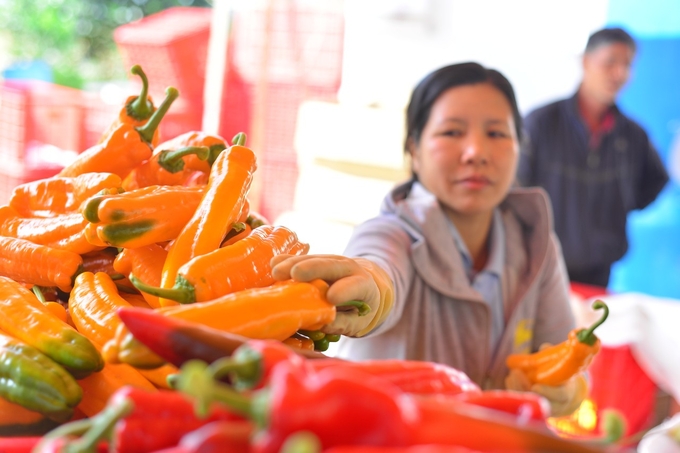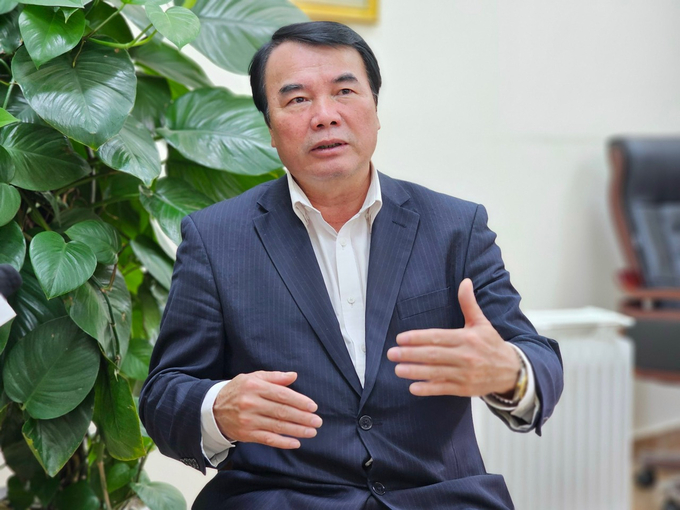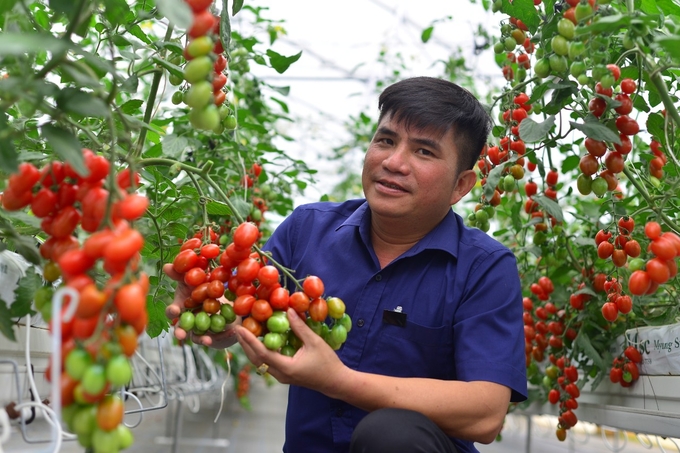June 14, 2025 | 07:46 GMT +7
June 14, 2025 | 07:46 GMT +7
Hotline: 0913.378.918
June 14, 2025 | 07:46 GMT +7
Hotline: 0913.378.918

Lam Dong province boasts advantageous human resources and ecological conditions conducive to large-scale agricultural production. Photo: Thieu Ngoc Khanh.
Lam Dong is a region characterized by numerous agricultural ecological sub-regions, positioning it as a leading locality in terms of integrating agricultural products into the global value chain. For over 20 years, Lam Dong has been at the forefront of high-tech agricultural production, laying a solid foundation for the rapid development of smart and organic agriculture.
The province's strengths include ample land resources, abundant water supply, skilled human resources, and suitable ecological conditions. These advantages facilitate large-scale agricultural production of superior products compared to other regions, including long-term industrial crops like tea, coffee, and mulberries, dairy farming, cold-water fish breeding, and high-quality vegetable and flower cultivation.
“Public-private partnerships in scientific research, particularly in the field of technology, has always been a priority for Lam Dong, providing us with necessary tools and skills to move forward,” stated Mr. Pham S, Vice Chairman of the Lam Dong Provincial People's Committee.
In agriculture, this collaboration is evident as businesses, researchers, and organizations consistently apply research findings to practical use. Especially in the context of Lam Dong, these innovations has been driving the path towards sustainable development and circular economy.

Mr. Pham S, Vice Chairman of the Lam Dong Provincial People's Committee, urged the central government to promote public-private partnerships in agriculture. Photo: Thieu Ngoc Khanh.
According to Mr. Pham S, rather than waiting for government funding, scientists have proactively conducted research and developed innovative technological products, subsequently transferring them to production.
The application of artificial intelligence in agricultural research exemplifies Lam Dong's digital transformation efforts. Innovations such as late flowering techniques, smart agriculture in dairy farming, and smart technologies for post-harvest preservation of fruits and vegetables have led to significant advancements.
These achievements have not only spread rapidly throughout the community but have also substantially contributed to the socio-economic development of Lam Dong province in recent years. More attention should be paid to accelerating the transformation in agricultural production.
Mr. Pham S affirmed that competition in science and technology is increasingly fierce to meet production needs.
"Central ministries, especially the Ministry of Agriculture and Rural Development, need to establish more favorable mechanisms and conditions for cooperation between the public and private sectors, particularly in commissioning research topics that research institutes and universities currently cannot meet or lack financial resources for. This can be done by engaging organizations, businesses, and researchers, including those from abroad,” said Vice Chairman Pham S.

Lam Dong province aims to develop high-tech, smart, and organic agriculture. Photo: Thieu Ngoc Khanh.
Mr. Pham S cited the example of selecting and cultivating a valuable medicinal plant or flower variety that has not been successfully developed by institutes and research facilities for many years. Through public-private partnerships, this can be achieved more quickly. Scientists can collaborate with domestic and international organizations on a contract basis, creating new breeds efficiently and cost-effectively. Instead of spending extensive time and money on initial research, this method allows the local agricultural sector to quickly acquire the necessary genomes for further research and practical application.
Over the past 20 years, Lam Dong has been focused on developing high-tech, smart, and organic agriculture. Lam Dong province is collaborating with Korea and Japan to develop circular and smart agriculture to expand and further develop, aligning with global value chain requirements for the future.
On the afternoon of July 10, the Ministry of Agriculture and Rural Development organizes a forum to connect agricultural science and technology products with businesses, cooperatives, and the public. Minister of Agriculture and Rural Development Le Minh Hoan and Deputy Minister of Agriculture and Rural Development Phung Duc Tien co-chair the forum.
Attending the forum are leaders of units under the Ministry of Agriculture and Rural Development, research institutes, schools affiliated with the Ministry, enterprises, cooperatives, and international organizations related to the agricultural sector. The forum is conducted in a question-and-answer format, directly addressing queries from delegates. Reports are presented, introducing the Ministry's policies for encouraging research and innovation in science and technology, showcasing the achievements, and highlighting successful examples of science and technology product transfers into production.
Vietnam Agriculture Newspaper report live this event on www.nongnghiep.vn.
Translated by Quynh Chi

(VAN) In Tien Giang, a high-tech shrimp farm has developed a distinctive energy-saving farming model that has yielded promising results.
![Turning wind and rain into action: [3] 300.000 farmers benefit from agro-climatic bulletins](https://t.ex-cdn.com/nongnghiepmoitruong.vn/608w/files/news/2025/06/12/e5a48259d6a262fc3bb3-nongnghiep-125122.jpg)
(VAN) The agro-climatic bulletin has become a valuable tool for farmers in the Mekong Delta. After more than five years of implementation, the initiative is gradually being expanded nationwide.
![Turning wind and rain into action: [2] Providing forecasts to the people](https://t.ex-cdn.com/nongnghiepmoitruong.vn/608w/files/news/2025/06/12/e5a48259d6a262fc3bb3-nongnghiep-103927.jpg)
(VAN) In addition to improving the quality of hydrometeorological forecasts, putting forecast bulletins into practical use is crucial for production and disaster prevention.

(VAN) Blue carbon is receiving attention for its rapid absorption capacity and vast potential. It represents a promising nature-based solution to respond to climate change.
/2025/06/11/3507-1-161904_583.jpg)
(VAN) Seagrass beds and coral reefs serve as 'cradles' that nurture life in the ocean depths, creating rich aquatic resources in Vietnamese waters.
![Turning wind and rain into action: [1] Forecasting for farmers](https://t.ex-cdn.com/nongnghiepmoitruong.vn/608w/files/news/2025/06/11/e5a48259d6a262fc3bb3-nongnghiep-111919.jpg)
(VAN) Weather is no longer just a matter of fate. Forecasts have now become an essential companion for farmers in every crop season.
/2025/06/10/2501-3-082025_983.jpg)
(VAN) Mr. Le Hoang Minh, Head of Vinamilk's Net Zero project, recently shared insights on the integration of production, energy, and technology in Vinamilk’s green transition journey.